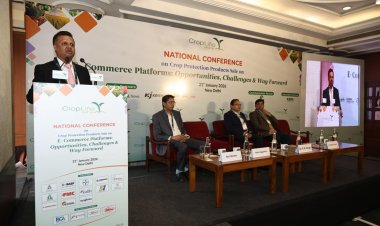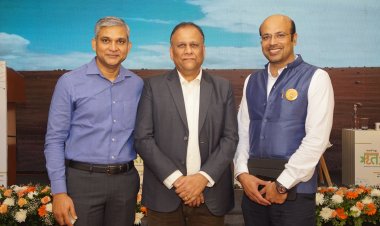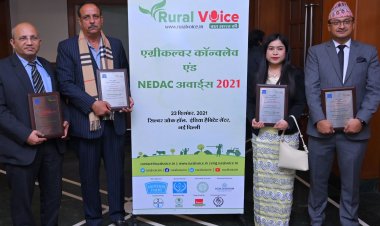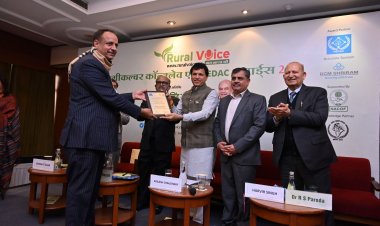Bridge skill gap to enhance career growth in tier-2 and -3 cities: Become a Digital Native
The Digital Natives of India have the capability to reach the top ranks in industry and academia with upskilling and mentorship programmes that are available online and accessible at no cost to all aspiring youth and professionals. It is the aim of AI platforms like e2eHiring and ruralvoice.in to partner and create awareness among youth in Tier-2, -3 and -4 cities about such options as can create several job opportunities for them and bridge the skill gap that is visible today. Mentorship programmes play an important role in creating this awareness.
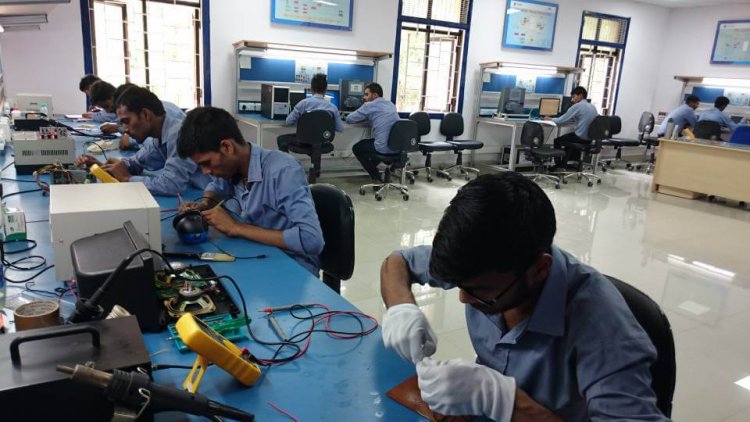
The pandemic has resulted in a major shift in how working youth live and in the way they will work in the coming future. The disconnect between academia and industry is becoming more evident today. As virtual is becoming the new norm, there is a need to rework on skill development of the youth and mentoring fresh talent.
The Ministry of Statistics and Programme Implementation (MoSPI) has released the ‘Youth in India 2022’ report recently, wherein Bihar and Uttar Pradesh are said to have experienced a rise in the proportion of youth population to total population till 2021, and along with Maharashtra, Madhya Pradesh and Rajasthan, are projected to have over half (52 per cent) of the country’s youth.
Keeping these figures in mind, the unemployment crisis is evident in India today. One of the key reasons behind this problem is that there are a large number of youth passing out of college every year. Although there are many new career options and job roles being added to various industries, the youth do not have awareness of the required skills that industries require for new positions. So, there is a wide gap between skill development and employment.
This has resulted in quiet quitting. The youth were already burning out amid ever-increasing demands to do more, with little support and with stagnating salary increases. Now the Great Resignation era has many fearing a mass exodus out of several companies in IT and related sectors. In this context, we need to remember the words of several mentors and industry leaders who say that determined decisions to start a career and finding opportunities to do so will always be tough but never impossible.
The Digital Natives of India have the capability to reach the top ranks in industry and academia with upskilling and mentorship programmes that are available online and accessible at no cost to all aspiring youth and professionals.
It is the aim of AI platforms like e2eHiring and ruralvoice.in to partner and create awareness among youth in Tier-2, -3 and -4 cities about such options as can create several job opportunities for them and bridge the skill gap that is visible today. Mentorship programmes play an important role in creating this awareness.
Mentoring youth in colleges and schools will help youth overcome mental and physical stress when they become part of the working population in India and take on professional challenges to reach their desired career goals.
Monuranjan Borgohain, CEO, e2eHiring, believes that as India approaches the next digital industrial revolution there is a major need for more skills, more jobs and more interactive career platforms for the youth. e2eHiring aims at bridging this gap between academia and industry and adopting a new holistic approach towards youth education and employment.
e2eHiring conducts campus drives in several colleges across tier-2 and -3 cities both online and offline. The student ambassadors from each college share their concerns and challenges faced during job applications. The responses to such queries are very insightful for the students. These drives can mould students into future leaders who will hence shape the destiny of India. They play an important role in helping talented and motivated youth become successful in careers and even in start-up businesses.
Recruitment platforms offering internships, mock interviews, personality tests and mentorships at no cost can help lakhs of aspiring youth in tier-2 and -3 cities to use technology and develop skills to enhance their productivity. In India, where 50 per cent of the population is 25 years or younger, and will grow till 2050, it is very important for them to understand the need to be active, dedicated and motivated to learn and contribute to business growth and their own professional growth.
We should recognise the role that technology can fundamentally change the way the world handles economic growth. Majority of Indian students are aware of only a few career options in law, engineering, medicine, accounts and finance, design, computer applications and IT. But there are several other career options that can be pursued in India. This lack of awareness among Indian youth regarding their future career options hampers the nation’s economic development and growth. There is a need to train the youth on live projects.
India’s tier-2 and -3 cities are emerging as some of the fastest-growing in the world, with young populations. Chandigarh, Indore, Vadodara, Kochi, Coimbatore, and Trivandrum have come to the fore in this context. These cities can become rising IT hubs in the coming years. But their education systems, though evolving, are not yet where they need to be. Furthermore, organizations are unable to reach these cities, which continues to be a matter of concern.
The need to have project-based learning and internships in many colleges and universities in these cities is more important than ever. In a world that has increasingly emphasized and signalled the need for skilled and job-ready graduates, it is necessary to value learning that can expand work opportunities and limit the skills gap. If the Government is sponsoring live skill development, it should also give access to live projects to skill development partners so that the youth get hands-on experience, raising the bar of quality and enabling them to take on bigger challenging roles.
The India Skills Report 2020 highlights that the youth employment rate has remained stagnant for the past three years. According to the Global Business Coalition for Education (GBC-Education), United Nations Children’s Fund (UNICEF) and the Education Commission, more than 50 per cent of the Indian youth are not on track to have the education and skills necessary for employment by 2030. It is necessary to keep these statistics in mind when we talk about measures to improve talent acquisition across different sectors of Industry.
Technological advancement needs to grow hand in hand with upgraded skills. This is possible by providing quality education, creating awareness about colleges and universities, new educational programmes across the globe, mentorship programmes, career counselling, and developing competitive skills through training and internships. This approach can surely make the youth aware, talented, confident and ready to compete with their global peers.
The role of job platforms aiming to empower students in tier-2 and -3 cities in India and provide access to global educational opportunities is the need of the hour. This is a major step towards creating new Global Tech Hubs and seeking hidden talent across the country. Jobs are not restricted to any particular cities or states. Develop your skills and you can reach anywhere.
Industry can be more proactive in these upcoming hubs leading to decentralization and help in avoiding mass migration to cities that are already overcrowded. This will enable better business continuity planning and management of financial and infrastructural resources.
How to resolve digital challenges in talent acquisition in all states
e2eHiring makes sure good talent is sourced, screened, and evaluated to make various partner companies fulfil their human resource needs. It's a big boon for youth from tier-2 and -3 cities as online recruitment, interview training and mentorship are provided at no cost.
e2eHiring platform allows employers to conduct glitch-free computer-based tests (CBTs). Over 1000+ questions based on different technologies with different complexity levels help organisations to hire candidates — from freshers to experienced ones. e2eHiring removes the menial work in recruitment efforts by providing all the data HR needs to make a hiring decision. Building strong public-private partnerships in the educational sector is the need of the hour. Keeping this goal in mind, recently, e2eHiring signed an MoU with the ICT Academy of Tamil Nadu.
Dr Ambedkar Institute of Technology in Bengaluru, University of Science & Technology in Meghalaya (USTM), Lovely Professional University (LPU) in Punjab, Gandhi Institute of Technology and Management (GITAM) in Visakhapatnam, Parul University, Vadodara, Amity Kolkata are some of the other universities and institutes that are already in partnership with the platform.
Hence such knowledge partnerships and collaborations between NGOs, recruitment platforms, government organisations and industry associations are very important.
e2eHiring helps students or job seekers from across the country to enrol for free on its online portal. Job-seekers from any background can enrol on the portal and apply for jobs. Those enrolled (students/job seekers) will be trained and mentored to develop their skills.
After training, they can apply for the jobs available on the portal across different sectors.
The candidates will have unlimited access to job postings. Universities and colleges will not be charged any fees and can register an unlimited number of students for several job opportunities. The platform also lets the government-private sector and academic institutes post internships and jobs for free.
Solidarity across generations is key for sustainable development. We must collaborate to foster successful and equitable intergenerational relations and partnerships to ensure “no one is left behind.”
(Priyashree Andley is heading Communications at e2eHiring Pvt Ltd, an AI patented platform that bridges the gap between recruiters, academia and talented youth in tier-2 and -3 cities across India.)



 Join the RuralVoice whatsapp group
Join the RuralVoice whatsapp group






























